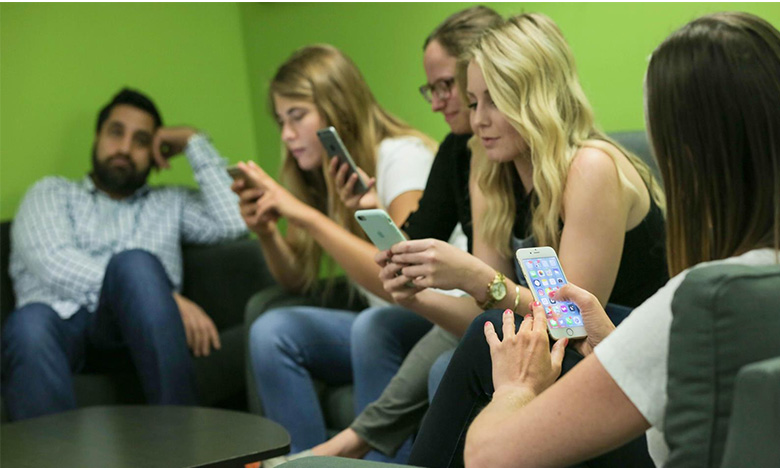For many of us, it’s the last thing we see before we go to sleep, the alarm that wakes us up, our connection to the world, our relentlessly thumbed companion. Dopamine-driving smartphones have created a sea of addicts. But some are more likely than others to have a smartphone problem.
This is a condition associated with increased anxiety. The findings were similar to a 2014 study of 164 Texas undergraduates in which women spent 600 minutes per day on their phones, compared to 459 minutes for men, and scored “significantly” higher on the researchers’ addiction scale. So what makes women more phone-addled? There are theories, but no firm conclusions.
Baylor University’s James Roberts, who helped conduct the 2014 study, says the phenomenon has to do with how women use their phones to form social bonds, while men want to be entertained or seek information. “And maintaining relationships means more work, longer time, checking up on their friends, checking up on their family, nurturing relationships,” Roberts says. “That not only requires more time but also can be more pleasurable.”
Holland Haiis, author of Consciously Connecting: A Simple Process to Reconnect in a Disconnected World, says heavier device usage comes from women’s outsize household roles. They’re checking up on kids’ schedules, making travel plans, organizing the days ahead. In addition, a 2014 Nielsen survey found women are more likely users of apps that track calories and exercise — providing more reasons to type updates and make one last check before bedtime. It adds up to a brain chemistry-altering state. “We get into this cycle,” Haiis says. “We’re anxious. We don’t know what to do. We’re waiting to email, social media, text, like me, share me, send me. We keep checking in that state of anticipation, and then comes arousal.”

